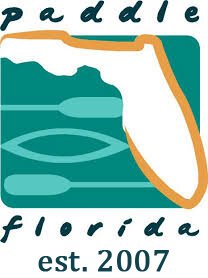Happy Paddler Spotlight
This month’s feature:
Once again, money and greed won the day over the environment in Tallahassee by Ryan Smart
Once again, money and greed won the day over the environment in Tallahassee
By Ryan Smart
Executive Director | Florida Springs Council
A few months ago, I was asked to contribute a column on the outcome of the 2022 Florida Legislative Session for the Sun’s “Messages from the Springs Heartland” series. I happily agreed. Tracking legislation is part of my job at the Florida Springs Council. And I believe it is critical that Floridians understand what happens during the legislative session in Tallahassee and how the decisions made during those 60 days impact us and our environment.
Going into the 2022 Legislative Session, I was optimistic that this year would be different. (Optimism is as much a job requirement as being able to type if you want to work in Florida environmental advocacy.) It was an election year, water issues and manatees were on the top of people’s minds, and the Legislature appeared poised to take action on at least one top environmental priority.
I was wrong.
Once again money and greed won the day in Tallahassee, thanks in no small part to campaign checks handed out by industry groups like Associated Industries of Florida and to campaign fraud linked to some of Florida’s most powerful corporations.
(This is the part of the guest column where I am supposed to write about all the laws the Legislature passed in 2022 to protect Florida’s springs and rivers, save the manatees, stop pollution, and restore our riverways.)
With that wrapped up, let’s look at what did happen this year:
Rooftop solar in Florida was killed off to benefit utility executives and shareholders.
In what may be the clearest case of pay-to-play ever written down in statute, utilities seeking permits to destroy wetlands are now allowed to pay the Department of Environmental Protection to “expedite” their applications.
When one Legislator’s preferred candidate for a seat on a local Soil and Water Conservation District was beaten by an environmentalist, the Senate initially proposed eliminating all of the Districts across the state, eventually settling on only restricting who could run for these seats to candidates paid by agricultural producers.
One current leader in the Legislature and candidate for State Agriculture Commissioner loaded up the budget of the agency he hopes to lead, while prohibiting the use of those funds until after the next election.
A massive bill impacting many areas of Florida environmental policy was filed at the 11th hour, skipped the normal committee process, and eventually passed with only minor amendments to appease the Governor’s wealthy donors.
The sad truth is that Floridians and Florida’s waters would be better off if the Legislature just passed the State Budget, the one thing they are required to do each year, and went home.
Unlike the hot button social issues and culture wars that dominate politics today, clean water isn’t a red vs. blue issue. It’s a corporate greed vs. public good issue. And despite the fact that almost every Floridian I know would pick the latter, and Florida voters again and again vote in favor of environmental initiatives with numbers that even the most popular politician could only dream of, the public good still loses in the Capitol.
We can’t change the outcome without changing the process. And we can’t change the process without changing who we elect.
I can’t tell you who to vote for. Even if I could, I would tell you not to take my word for it. And, even if you did want to take my word, many of you won’t have a candidate from either political party on the ballot worthy of your vote, if you value what I value about Florida.
But maybe I can help you ask the right questions of the candidates. These are admittedly simple questions with simple answers. They are so simple that every candidate for the Florida Legislature should be able to easily answer “yes” or “no.”
Do you accept campaign contributions from corporations or special interest political action committees?
Should corporations be allowed to pump millions of gallons of water each day for free from Florida’s springs?
Is the Florida Department of Environmental Protection doing a good job of protecting Florida’s waters?
A candidate who doesn’t answer “no” to these questions on the campaign trail is unlikely to tell polluters, developers, and corporate lobbyists “no” in the Capitol. They won’t have my vote, and they probably don’t deserve yours.
If you don’t want to read another guest column like this next year as much as I don’t want to write one, please ask candidates these three questions and then Vote Water this election.
Ryan Smart is the Executive Director of the Florida Springs Council, a non-profit focused on advocacy and legal action for Florida’s world-class springs and rivers.

